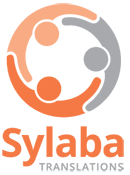In the intricate realm of legal proceedings, where every word can shape destinies, the importance of accurate documentation cannot be overstated. This is where legal transcription plays a pivotal role. In this article, we will unravel the mysteries surrounding legal transcription, exploring its purpose, and shedding light on the crucial role it plays in court hearings.
Legal proceedings can be a labyrinth of complexities, and three common pain points emerge for legal professionals and other stakeholders involved. The challenge of maintaining a precise record, ensuring fairness, and enhancing accessibility for all parties involved often looms large. Let’s delve into these issues and discover how legal transcription can be the key to addressing them.
What is Legal Transcription?
Legal transcription is the meticulous process of converting spoken words from legal proceedings into accurate written records. These proceedings can range from court hearings and depositions to legal dictations. The transcriptions serve as a tangible and retrievable documentation of every uttered word during these events.
What is the Purpose of Legal Transcription?
Legal transcription serves a multitude of purposes, each contributing to the efficiency and integrity of the legal process.
-
Creating a Written Record
The primary purpose of legal transcription is to create a comprehensive written record of everything said during a legal proceeding. This serves as a historical document, capturing the nuances and details that might be overlooked in the heat of the moment. This record becomes invaluable for reference in the future.
-
Ensuring Fairness and Accuracy
In the pursuit of justice, fairness and accuracy are non-negotiable. Legal transcriptions play a critical role in ensuring that the proceedings are faithfully documented, providing an unbiased account of what transpired. This not only aids legal professionals in presenting their cases but also safeguards the integrity of the legal system.
-
Providing Reference for All Parties
Legal proceedings involve a multitude of stakeholders – judges, lawyers, litigants, and witnesses. Legal transcriptions serve as a reference point for all these parties, facilitating a deeper understanding of the case. This reference can be crucial in formulating strategies, making informed decisions, and presenting arguments coherently.
-
Enhancing Accessibility
In the pursuit of a more inclusive legal system, legal transcriptions contribute to accessibility. These written records can be made available in various formats, making legal proceedings accessible to individuals with disabilities. This inclusivity aligns with the principles of equal access to justice for all.
Benefits of Using a Professional Legal Transcription Service
While the importance of legal transcription is clear, the quality of the transcription service chosen is equally crucial. Opting for a professional legal transcription service offers a range of benefits.
-
Training and Experience
Professional legal transcriptionists undergo specialized training, equipping them with the skills to navigate legal jargon and complex terminology. Their experience ensures accurate and contextually relevant transcriptions, reducing the risk of errors.
-
Quick and Efficient
Legal proceedings often operate on tight timelines. Professional transcription services understand the urgency and deliver quick and efficient results. This timeliness is crucial for legal professionals who need rapid access to accurate transcripts.
-
Variety of Formats
Legal professionals have diverse preferences when it comes to document formats. Professional transcription services offer flexibility, delivering transcriptions in various formats such as PDFs, Word documents, or other customized formats tailored to the client’s needs
The Evolution of Legal Transcription Technology
The evolution of legal transcription technology has significantly transformed the field, enhancing efficiency, accuracy, and overall productivity. Here is a brief overview of how technology has influenced legal transcription over the years:
-
Manual Transcription:
In the early days, legal transcription was a predominantly manual process. Stenographers and typists transcribed court proceedings, depositions, and other legal documents by hand. This method was time-consuming and prone to human error.
-
Dictation Machines:
The introduction of dictation machines in the mid-20th century marked a significant advancement. Attorneys and legal professionals could dictate their notes, and transcriptionists would transcribe the recordings. While this improved efficiency, it still relied on manual transcription.
-
Analog Tape Recorders:
Analog tape recorders became widely used for legal transcription in the mid-20th century. This technology allowed for easier recording and playback of proceedings, reducing the need for immediate transcription. However, the transcription process remained manual and time-intensive.
-
Digital Audio Recording:
The shift to digital audio recording in the late 20th century further streamlined the process. Digital files were easier to store, duplicate, and share. Legal professionals could record proceedings digitally, and transcriptionists could work with these files more efficiently than with analog tapes.
-
Word Processing Software:
The advent of word processing software in the 1980s and 1990s revolutionized legal transcription. Transcriptionists began using computers for typing, editing, and formatting documents, significantly increasing the speed and accuracy of the transcription process.
-
Voice Recognition Technology:
In recent years, voice recognition technology has made a substantial impact on legal transcription. Advanced speech-to-text software allows for the automatic conversion of spoken words into written text. This technology has significantly reduced the need for manual transcription, providing faster turnaround times and cost savings.
-
Cloud-Based Transcription Services:
Cloud-based transcription services have become increasingly popular. Legal professionals can upload audio files to cloud platforms, where automated transcription algorithms process the content. This not only speeds up the transcription process but also facilitates collaboration and access to transcripts from anywhere
-
Artificial Intelligence (AI) and Machine Learning:
AI and machine learning technologies are now being integrated into transcription solutions. These technologies can learn from large datasets, improving accuracy over time. AI-driven transcription services can identify speakers, handle various accents, and adapt to different legal contexts.
-
Automatic Time Stamping and Annotation:
Modern transcription tools often include automatic time stamping and annotation features. This allows legal professionals to quickly navigate through transcripts, locate specific sections, and reference key points in legal proceedings.
-
Security and Compliance:
With the increasing digitisation of legal transcription, there is a greater emphasis on security and compliance. Transcription services now incorporate encryption, secure data storage, and compliance with privacy regulations to ensure the confidentiality of legal information.
The evolution of legal transcription technology has transitioned from manual processes to sophisticated automated solutions. These advancements have not only improved the speed and accuracy of transcription but have also enhanced collaboration, accessibility, and security in the legal transcription field.
Conclusion
Legal transcription is the silent hero in the realm of legal proceedings. It addresses the pain points of maintaining accurate records, ensuring fairness, and enhancing accessibility. The purpose it serves is not just administrative; it is foundational to the principles of justice.
As you navigate the complexities of the legal landscape, consider the transformative power of legal transcription. It is more than a service; it is an ally in the pursuit of justice. Take the next step towards precision and efficiency – explore the advantages of professional legal transcription services. Your legal journey deserves nothing less, and quality translation services can further amplify the impact of your legal documentation.
Unlock the potential of accurate legal documentation. Explore our professional legal transcription services today.
Related Posts

Get a quote today
"*" indicates required fields
Subscribe today to receive the latest insights and updates from Sylaba Translations









